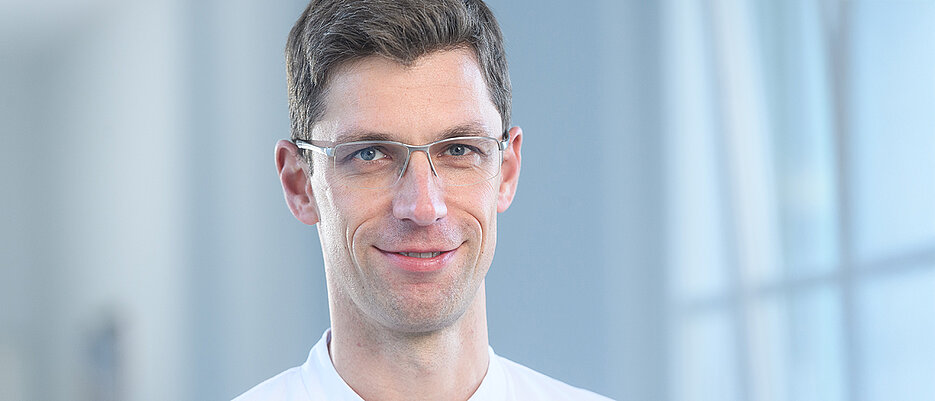Würzburg Anaesthetist and Intensive Care Physician Joins Leopoldina
11/25/2025Patrick Meybohm has been appointed as a new member by the Presidium of the German National Academy of Sciences Leopoldina.
The German National Academy of Sciences Leopoldina is the voice of science in Germany. The approximately 1,600 academy members from all over the world advise politics and society on important issues, advocate scientific excellence and integrity, promote dialogue with the general public and represent German science in an international context. Being nominated and elected as a member is therefore a great honour for any scientist.
This honourable distinction has now been bestowed on Professor Patrick Meybohm. He is Director of the Clinic and Polyclinic for Anaesthesiology, Intensive Care Medicine, Emergency Medicine and Pain Therapy at the University Hospital of Würzburg and holds the Chair of Anaesthesiology at Julius-Maximilians-Universität Würzburg (JMU). "I am very pleased about the high regard in which my scientific work has been held to date and look forward to contributing to the activities of this traditional National Academy as a member in the future," said the anaesthetist and intensive care physician.
Congratulations from the University President
The President of JMU, Paul Pauli, also offered his congratulations: "This award is a special recognition of Patrick Meybohm's outstanding scientific achievements and great commitment - particularly in the field of anaesthesiological and intensive care research."
Patrick Meybohm's expertise lies primarily in the field of intensive care medicine and translational research. His aim is to minimise risks during major operations and complications in intensive care medicine and thus create the basis for modern, evidence-based perioperative medicine.
Meybohm is also working on the further development of patient blood management, a concept based on three pillars: early detection and treatment of anaemia before planned interventions, minimising intraoperative blood loss and only performing blood transfusions according to clear clinical criteria. This optimises the perioperative care of patients, increases safety and significantly reduces dependence on external blood reserves.
About the Person
Patrick Meybohm, born in Stendal in 1978, studied human medicine at the University of Göttingen, where he also completed his doctorate in 2004. He began his specialist training as an anaesthetist at the University Medical Centre Schleswig-Holstein, Kiel Campus. In 2009, he received his specialist qualification in anaesthesiology as well as the Venia Legendi in this specialist field.
In 2019, he was appointed to the W2 professorship for anaesthesiology and intensive care medicine at the Johann Wolfgang Goethe University in Frankfurt am Main. Since 2020, the father of two has held the W3 professorship for anaesthesiology at the Faculty of Medicine at Julius-Maximilians-Universität Würzburg and is also Director of the Clinic and Polyclinic for Anaesthesiology, Intensive Care Medicine, Emergency Medicine and Pain Therapy at Würzburg University Hospital.
The National Academy of Sciences Leopoldina
Charles Darwin, Marie Curie, Albert Einstein, Emmanuelle Charpentier, Harald zur Hausen - they were or are all members of the Leopoldina. The National Academy of Sciences is one of the oldest and most renowned scientific academies in the world. Founded as the "Academia Naturae Curiosorum" in Schweinfurt in 1652, the first members of the "Academy of Natural Scientists" were primarily concerned with medical and scientific issues and made a significant contribution to scientific enlightenment. To this day, the Leopoldina stands for scientific excellence and interdisciplinary exchange.
In order to maintain the strength of the Academy, the Leopoldina elects around 50 new members each year in a selection process lasting several days. The members are organised into specialist sections, which in turn are assigned to four classes focusing on the natural sciences, life sciences, medicine and the behavioural, social and human sciences. Independent of economic or political interests, the scientists work on socially relevant topics for the future and advise German politicians and international institutions on important issues. Their opinions on topics such as health, climate change and technology carry great weight. The Leopoldina is also committed to promoting respect for human rights.







